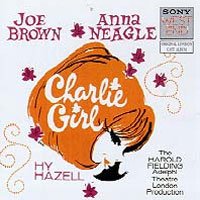Introduction
In the history of London’s theater scene, there have been many iconic productions that have left a lasting impact on audiences. One such production is the beloved musical “Charlie Girl,” which concluded its successful run at the Adelphi Theatre on March 27, 1971. With a total of 2,202 performances, this musical captivated audiences with its captivating storyline and memorable music. Let’s delve into the historical significance of this production and the reasons behind its enduring popularity.
The Creation of “Charlie Girl”
“Charlie Girl” was the brainchild of David Heneker and John Taylor, who collaborated to bring this musical to life. The production first premiered on December 15, 1965, at the Adelphi Theatre, and it quickly gained popularity among theatergoers. The musical tells the story of a young woman named Charlie, who inherits a fortune and finds herself torn between two love interests.
The success of “Charlie Girl” can be attributed to its engaging storyline, catchy songs, and talented cast. The musical featured memorable tunes such as “Please Don’t Touch,” “It’s Not Where You Start,” and the titular song, “Charlie Girl.” These songs became instant hits and contributed to the overall popularity of the production.
The Impact and Legacy
During its run, “Charlie Girl” became a cultural phenomenon and a must-see for theater enthusiasts. Audiences were captivated by the performances, the elaborate sets, and the stunning costumes. The musical received critical acclaim for its innovative staging and the talent of its cast.
One of the reasons behind the enduring popularity of “Charlie Girl” is its ability to resonate with audiences on a personal level. The themes of love, ambition, and self-discovery explored in the musical are universal and timeless. This emotional connection with the audience contributed to the long-lasting impact of the production.
Furthermore, “Charlie Girl” played a significant role in shaping the London theater scene of the time. Its success paved the way for other musicals and established the Adelphi Theatre as a prominent venue for theatrical productions. The closure of “Charlie Girl” marked the end of an era and left a void that would be filled by future productions.
1971: Closure of “Charlie Girl” Musical
On March 27, 1971, after an impressive run of 2,202 performances, “Charlie Girl” bid farewell to its loyal audience. The closure of the musical was met with mixed emotions, as fans were sad to see it end but grateful for the memories it had created.
The closure of “Charlie Girl” was a significant moment in the history of London’s theater scene. It marked the end of an era and symbolized the ever-changing nature of the entertainment industry. Despite its closure, the impact of the musical continued to be felt, and its legacy lives on through recordings, cast albums, and the memories of those who experienced it.
Conclusion
The closure of “Charlie Girl” in 1971 was a bittersweet moment for theater enthusiasts. The musical had left an indelible mark on the London theater scene with its captivating storyline, memorable music, and talented cast. Its enduring popularity and legacy serve as a testament to the creative vision of David Heneker and John Taylor.
Although “Charlie Girl” may have ended its run at the Adelphi Theatre, its impact continues to be felt to this day. The musical’s closure marked the end of an era, but its influence on the London theater scene and its place in theatrical history cannot be understated. “Charlie Girl” will always be remembered as a beloved production that touched the hearts of audiences and contributed to the rich tapestry of London’s theatrical heritage.

